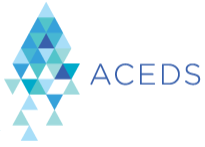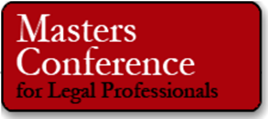New Roles for George Socha and Randi Mayes and First Masters Conference Report: eDiscovery Trends

Changes are in store for a couple of legal technology icons. And, here are some of the things you missed at this week’s Masters Conference.
George Socha Has a New Role
ACEDS reported yesterday that George Socha, co-founder of EDRM, announced yesterday at the Summer Social for Women in eDiscovery in Minneapolis that he has joined BDO as Managing Director for Thought Leadership. ACEDS reports that George says he will be continuing his work with EDRM and will continue to be a presence at industry conferences, on webinars, and publishing new eDiscovery materials. Having participated in EDRM since 2006 (and as an Education partner via eDiscovery Daily), I can’t imagine EDRM without George, so that’s good to hear.
ACEDS reported that George says he still has to figure out all of his new responsibilities within the company but will be actively involved in business development as well as working on specific matters, including providing expert testimony. “One of the things that impressed me about BDO was their concern with making sure I understood and appreciated the importance they place on collaborative work and teamwork,” George said.
Randi Mayes Stepping Down as Executive Director of ILTA
ACEDS also reported ILTA’s announcement that Randi Mayes, known as the “Mother of ILTA” and the organization’s long-serving executive director, will step down from her position in 2017. Randi has been with the organization since its inception, first as a volunteer leader and eventually as its executive director. I remember coordinating with her as a vendor way back in 1999-2000, when ILTA was known as LawNet and the conference every year was located in Palm Springs at the LaQuinta resort. The organization and the conference have both come a long way and she has been a big part of that.
The organization’s Board of Directors says it has formed a search committee to oversee the process of selecting a new executive director.
Notes from the Masters Conference, courtesy of Bill Dimm
We had a terrific day at The Masters Conference New York City 2016 IoT, Cybersecurity and Social Media Conference on Monday and I want to thank the panelists for the session that I moderated (Faster, Cheaper, Better: How Automation is Revolutionizing eDiscovery). Bill Dimm, CEO of Hot Neuron, Bill Speros, Evidence Consulting Attorney with Speros & Associates, LLC and Hon. Ronald J. Hedges, Senior Counsel with Dentons all provided great insight into considerations and potential limitations of technology assisted review from a technician, consultant and judicial perspective. They did a great job of spotlighting several instances where the hype of TAR may not meet the current state of TAR technology and acceptance.
When we were not presenting, we were able to attend other sessions throughout the day. Most of the time, there were two sessions going at the same time, so you could only attend one of them. I have some observations that I plan to share from one or two of the sessions next week. Bill Dimm, on his Clustify blog, has already provided some observations here from the sessions that he attended that are worth checking out as well.
So, what do you think? Please share any comments you might have or if you’d like to know more about a particular topic.
Disclaimer: The views represented herein are exclusively the views of the author, and do not necessarily represent the views held by CloudNine. eDiscovery Daily is made available by CloudNine solely for educational purposes to provide general information about general eDiscovery principles and not to provide specific legal advice applicable to any particular circumstance. eDiscovery Daily should not be used as a substitute for competent legal advice from a lawyer you have retained and who has agreed to represent you.







